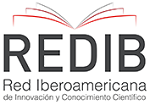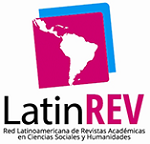Formación docente en tecnología: su influencia sobre las competencias TIC
DOI:
https://doi.org/10.15649/2346030X.4351Palabras clave:
educación, competencia digital, alfabetización informática, educación tecnológicaResumen
Este estudio analiza las competencias digitales de los educadores en Norte de Santander, Colombia, y la influencia de variables socioacadémicas. Se adoptó un diseño cuantitativo, descriptivo y correlacional con una muestra de 538 docentes de básica y media en instituciones educativas públicas. Utilizando un cuestionario basado en el modelo de competencias TIC del Ministerio de Educación Nacional de Colombia, se evaluaron las habilidades tecnológicas, pedagógicas, comunicativas, de gestión e investigativas en los niveles de explorador, integrador e innovador. Los datos se analizaron con SPSS utilizando análisis descriptivos, correlaciones de Spearman y ANOVA. Los resultados indican variaciones significativas en las competencias TIC según la edad, el género y la formación académica, con los docentes más jóvenes y aquellos con estudios de postgrado presentando mayores habilidades y confianza en el uso de TIC. La formación continua y de postgrado es esencial para desarrollar competencias digitales, aunque persisten desafíos en las áreas investigativa y comunicativa. La formación en TIC debe ser diferenciada y adaptarse a las características demográficas y profesionales de los docentes para mejorar su aplicación en contextos educativos.
Referencias
J. Voogt y N. P. Roblin, «A Comparative Analysis of International Frameworks for 21st Century Competences: Implications for National Curriculum Policies,» Journal of Curriculum Studies, vol. 44, pp. 299-321, Apr., 2012.
UNESCO, Responding to COVID-19 and beyond, the Global Education Coalition in action, París: UNESCO, 2020.
F. J. Rodríguez-Jiménez, . M. E. Pérez-Ochoa y O. Ulloa-Guerra, «Competencias digitales docentes y retos durante la pandemia COVID-19,» Magis, vol. 15, pp. 1-23, Oct., 2022.
F. D. Guillén-Gámez y M. J. Mayorga-Fernández, «A study on the actual use of digital competence in the practicum of education degree,» Tech Know Learn, vol. 25, nº 2, pp. 667-684, Aug., 2020.
Ministerio de Educación Nacional, Competencias TIC para el desarrollo profesional docente, Bogotá: Mineducación, 2013.
C. A. Hernández, M. A. Arévalo y A. A. Gamboa, «Competencias TIC para el desarrollo profesional docente en educación básica,» Praxis & Saber, vol. 7, nº 14, pp. 41-63, Abr., 2016.
Instituto Nacional de Tecnologías Educativas y de Formación del Profesorado, «Marco de Referencia de la Competencia Digital Docente,» INTEF, 2022.
K. A. Lawless y J. W. Pellegrino, «Professional development in integrating technology into teaching and learning: Knowns, unknowns, and ways to pursue better questions and answers,» Computers & Education, vol. 49, nº 2, pp. 257-289, nov., 2007.
A. A. Gamboa, C. A. Hernández y R. Prada, «Práctica pedagógica y competencias IC: atributos y niveles de integración en docentes de instituciones educativas de básica y media,» Saber, Ciencia y Libertad, vol. 13, nº 1, pp. 258-274, En., 2018.
A. Ferrari, B. Brečko y . Y. Punie, «DIGCOMP: A Framework for Developing and Understanding Digital Competence in Europe,» eLearning Papers, nº 38, pp. 1-14, Sep., 2014.
G. Sang, M. Valcke, J. Van Braak y J. Tondeur, «Student teachers' thinking processes and ICT integration: Predictors of prospective teaching behaviors with educational technology,» Computers & Education, vol. 54, nº 1, pp. 103-112, Jan., 2010.
J. Cabero-Almenara y M. Llorente-Cejudo, «Marcos de Competencias Digitales para docentes universitarios: su evaluación a través del coeficiente competencia experta,» Revista Electrónica Interuniversitaria de Formación del Profesorado, vol. 23, nº 2, pp. 1-18, Abr., 2020.
J. Tondeur, J. Van Braak, G. Sang, J. Voogt, P. Fisser y A. Ottenbreit-Leftwich, «Fisser, and A. Ottenbreit-Leftwich, “Preparing pre-service teachers to integrate technology in education: A synthesis of qualitative evidence,» Computers & Education, vol. 59, nº 1, pp. 134-144, Aug., 2012.
M. A. Losada y C. C. Peña, «Las competencias digitales: un análisis correlacional en los docentes del nivel de básica primaria,» Transdigital, vol. 4, nº 7, pp. 1-30, Feb., 2023.
J. Smith, «Competencias digitales docentes y su impacto en la deserción universitaria,» de Tecnologías digitales en la educación: Perspectivas y desafíos, Editorial Universitaria, 2020, pp. 45-60.
L. Darling-Hammond , «Teacher education around the world: What can we learn from international practice?,» European Journal of Teacher Education, vol. 40, nº 3, pp. 291-309, May., 2017.
D. Romero-Sánchez y . D. Barrios, «Modelo de ecuaciones estructurales para la evaluación de competencias tecnológicas en estudiantes universitarios,» TecnoLógicas, vol. 26, nº 56, p. e2470, Abr., 2023.
C. Carrera, Y. I. Lara y J. Madrigal, «Evaluación del logro del perfil de egreso. Un estudio de caso,» RECIE. Revista Electrónica Científica De Investigación Educativa, vol. 4, nº 2, pp. 1019-1028, Dic., 2019.
National Academy of Engineering, Engineering in K-12 education: Understanding the status and improving the prospects, Washington, DC: The National Academies Press, 2010.
J. M. Spector, «Conceptualizing the scholarship of teaching and learning in research universities,» de Handbook of research on educational communications and technology, New York, Springer, 2014, pp. 3-10.
S. Dias-Trindade, J. A. Moreira y S. Lima, «Variability in the formation of investigative competencies in higher education,» Research in Higher Education Journal, 2020.
K. Hyland, Academic discourse: English in a global context, London: Continuum, 2020.
K. Leithwood, A. Harris y D. Hopkins, «Seven strong claims about successful school leadership revisited,» School Leadership & Management, vol. 40, nº 1, pp. 5-22, Apr., 2020.
A. Brew, Research and teaching: Beyond the divide, Basingstoke: Palgrave Macmillan, 2010.
C. Redecker, European Framework for the Digital Competence of Educators: DigCompEdu, Luxembourg: European Union, 2017.
B. Demirtas y F. Mumcu, «Pre-Service Teachers' Perceptions of ICT and TPACK Competencies,» Acta Educationis Generalis, vol. 11, nº 2, pp. 60-82, Aug., 2021.
R. Romero, C. Llorente y A. Palacios, «Competencias Digitales Docentes desarrolladas por el alumnado del Grado en Educación Infantil: presencialidad vs virtualidad,» Edutec, Revista Electrónica De Tecnología Educativa, nº 76, pp. 109-125, Jun., 2021.
J. Cabero-Almenara y V. Marín-Díaz, «Blended learning y realidad aumentada: experiencias de diseño docente,» RIED-Revista Iberoamericana de Educación a Distancia, vol. 21, nº 1, pp. 57-74, Feb., 2018.
P. Peciuliauskiene, G. Tamoliune y E. Trepule, «Exploring the roles of information search and information evaluation literacy and pre service teachers’ ICT self e cacy in teaching,» Int J Educ Technol High Educ, vol. 19, nº 33, Jun., 2022.
F. X. Carrera y J. L. Coiduras, «Identificación de la competencia digital del profesor universitario: un estudio exploratorio en el ámbito de las Ciencias Sociales,» REDU Revista de Docencia Universitaria, vol. 10, nº 2, pp. 273-298, May., 2012.
P. A. Ertmer, A. T. Ottenbreit-Leftwich y O. Sadik, «Sendurur and P. Sendurur, “Teacher beliefs and technology integration practices: A critical relationship,» Computers & Education, vol. 59, nº 2, pp. 423-435, Sep., 2012.
L. Cuban, H. Kirkpatrick y C. Peck, «High Access and Low Use of Technology in High School Classrooms: Explaining an Apparent Paradox,» American Educational Research Journal, vol. 38, nº 4, pp. 813-834, Dec., 2001.
International Society for Technology in Education, «ISTE Standards for Educators,» 2017.
C. Angeli y N. Valanides, «Epistemological and methodological issues for the conceptualization, development, and assessment of ICT-TPCK: Advances in technological pedagogical content knowledge (TPCK),» Computers & Education, vol. 52, nº 1, pp. 154-168, Jan., 2009.
B. G. Hidalgo y M. Gisbert, «Análisis de las competencias digitales del profesorado universitario desde el modelo TPACK (conocimiento tecnológico y pedagógico del contenido),» INNOVA Research Journal, vol. 5, nº 3.2, pp. 79-96, Dec., 2020.
T. Teo, «Modelling technology acceptance in education: A study of pre-service teachers,» Computers & Education, vol. 52, nº 2, pp. 302-312, Feb., 2009.
P. Mishra y M. J. Koehler, «Technological Pedagogical Content Knowledge: A Framework for Teacher Knowledge,» Teachers College Record, vol. 108, nº 6, pp. 1017-1054, Jun., 2006.
K. A. Bingimlas, «Barriers to the successful integration of ICT in teaching and learning environments: A review of the literature,» EURASIA J Math Sci Tech Ed., vol. 5, nº 3, pp. 235-245, Jan., 2009.
UNESCO, Enfoques Estratégicos sobre las TIC en Educación en América Latina, Chile: UNESCO, 2014.
Descargas
Publicado
Cómo citar
Descargas
Número
Sección
Licencia
Derechos de autor 2024 AiBi Revista de Investigación, Administración e Ingeniería

Esta obra está bajo una licencia internacional Creative Commons Atribución 4.0.
La revista ofrece acceso abierto bajo una Licencia Creative Commons Attibution License

Esta obra está bajo una licencia Creative Commons Attribution (CC BY 4.0).








